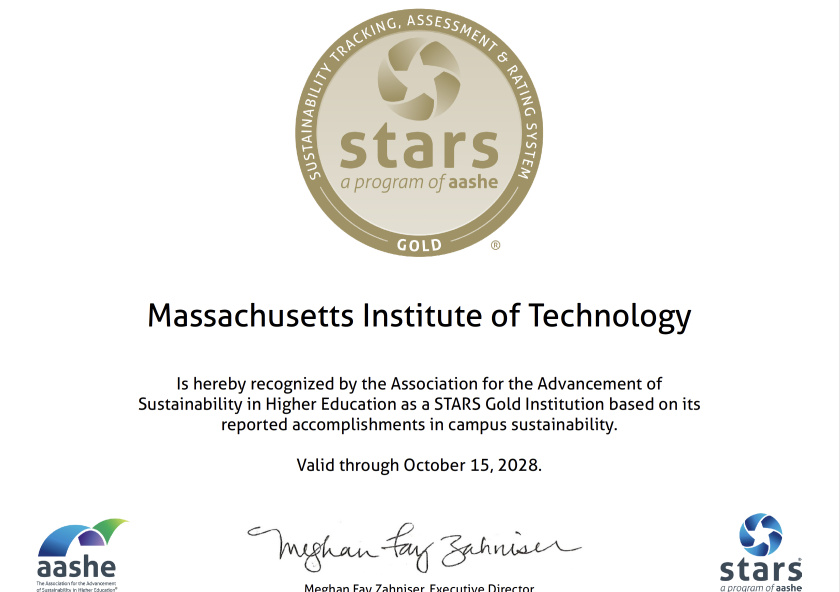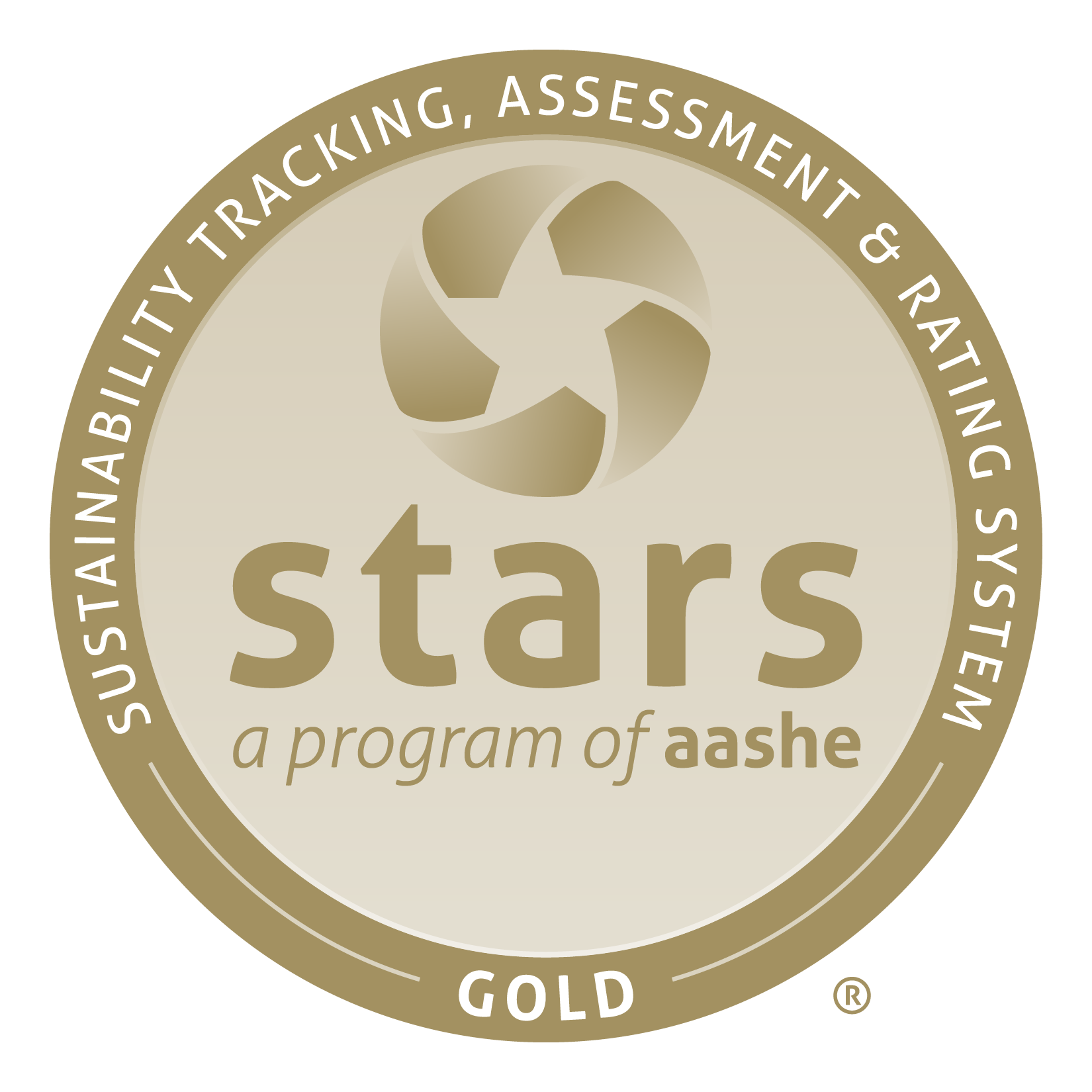
MIT receives GOLD for the Sustainability Tracking, Assessment & Rating System (STARS) for 2025

MIT has earned a Gold rating from the Association for the Advancement of Sustainability in Higher Education (AASHE) for achievements in sustainability and climate action across the Institute. This marks MIT’s third Gold rating and its first submission under the Sustainability Tracking, Assessment & Rating System (STARS) version 3.0—a more rigorous framework that strengthens how institutions track performance in areas such as energy, research, resource efficiency, and engagement.
STARS provides a transparent, standardized framework for colleges and universities to measure and report their sustainability performance. The updated version deepens the emphasis on measurable impacts and long-term climate goals, offering a comprehensive view of institutional progress.
The MIT Office of Sustainability (MITOS) led the submission process, coordinating input from a core team of 9 staff members and more than 40 additional contributors, representing 32 academic and administrative departments and three student organizations. In total, 50 members of the MIT community contributed to the 2025 report.
MITOS also hired Lilly Heilshorn ’25 as a student research assistant to support data collection and analysis, continuing MIT’s tradition of involving students directly in campus sustainability work.
“This submission reflects the collective work of our entire campus community,” said Julie Newman, Director of Sustainability. “By engaging experts and collaborators across the Institute, we’re translating data into action and aligning our daily operations with MIT’s long-term climate commitments.”
A New Framework, Continued Progress
STARS v3.0 introduces expanded and more demanding metrics for emissions, energy, procurement, and campus operations. Despite these higher standards, MIT once again achieved a Gold rating, demonstrating continued leadership in campus sustainability and climate action.
The results align with Institute-wide efforts, including the Fast Forward Climate Action Plan, which outlines a pathway to decarbonize campus operations, and The Climate Project at MIT, President Sally Kornbluth’s initiative to mobilize the Institute’s full capacity toward climate solutions.
Measuring Impact Across Campus
The 2025 report compiles over 1,000 data points across five broad categories: Academics, Engagement, Operations, Planning & Administration, and Innovation & Leadership. Highlights include:
Academics: 90% of MIT departments now offer sustainability-related courses (up from 58% in 2018), reflecting deep integration of climate and environmental learning across disciplines. Students also contributed directly through applied research and campus-based sustainability projects.
Engagement: Community and student partnerships, including department workshops, Waste Watchers, Campus Climate Action Ambassadors, and a new farmstand program, continued to grow, advancing climate culture across campus.
Operations: MIT reduced building emissions by 3% in FY2024, expanded rooftop solar generation, and enabled two large-scale off-campus renewable projects adding over 400 MW of clean capacity to the grid. Progress also continued in waste diversion, water efficiency, and sustainable dining initiatives.
Transportation: MIT maintained strong participation in low-carbon commuting programs, while new EV charging stations and electric fleet vehicles advanced sustainable mobility goals.
Planning & Administration: The Institute expanded emissions tracking through a new Scope 3 dashboard and enhanced data transparency via the Sustainability DataPool, linking operational metrics to MIT’s Fast Forward Climate Action Plan.
Innovation & Leadership: Through initiatives like the Consortium for Climate Solutions to enable large-scale renewable energy projects, MIT continues to pioneer collaborative models that drive measurable climate impact well beyond campus.
Looking Ahead
The STARS process continues to inform and strengthen MIT’s climate and sustainability strategies. Data and insights from this submission will support future updates to the Fast Forward Climate Action Plan and ongoing progress toward MIT’s operational decarbonization goals.
The MIT community and public can explore MIT’s full report through the AASHE STARS public portal.


